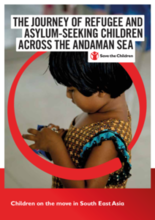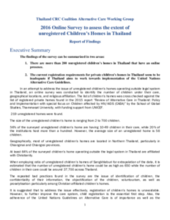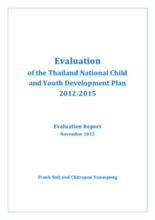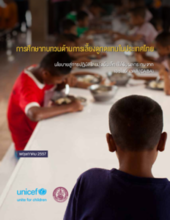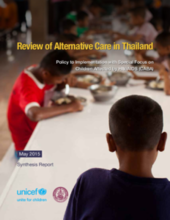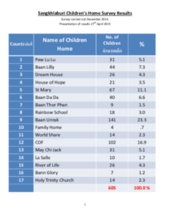This country page features an interactive, icon-based data dashboard providing a national-level overview of the status of children’s care and care reform efforts (a “Country Care Snapshot”), along with a list of resources and organizations in the country.
demographic_data
childrens_living_arrangement
children_living_without_bio
adoption
social_work_force
key_stakeholders
Key Stakeholders
Add New Datadrivers_of_institutionalisation
Drivers of Institutionaliziation
Add New Datakey_research_and_information
Key Data Sources
Add New DataThailand Alternative Care Case Study
Prevalence and number of children living in institutional care: global, regional, and country estimates
Displaying 71 - 80 of 103
This is a longitudinal mixed-method study investigating the impact of parental migration on early childhood well-being and development in Thailand. This report presents the baseline results of quantitative and qualitative surveys.
This is a longitudinal mixed-method study investigating the impact of parental migration on early childhood well-being and development in Thailand.
The first Global Forum for a World Without Orphans will be held on February 11-14, 2016 in Chiang Mai, Thailand.
This report reviews the maritime movements of asylum-seeking children across South East Asia and their experiences in countries of origin, transit and destination.
This document is a report on the 2016 Online Survey of Unregistered Children’s Homes in Thailand. This report found that there are more than 200 unregistered children’s homes in Thailand that have an online presence, and the current registration requirements for private children’s homes in Thailand seem to be inadequate if Thailand aims to work towards implementation of the United Nations Alternative Care Guidelines.
The present evaluation examines the National Child and Youth Development Plan, which provides a framework for the development of children and youth in Thailand. The evaluation aimed to review the design and implementation of the NCYDP and to generate lessons in order to improve the operation of the current plan and to inform the development of a follow-up plan for the period beyond 2016.
The purpose of this research was to capture more accurate and detailed information regarding children in various forms of alternative care in Thailand.
The purpose of this research was to capture more accurate and detailed information regarding children in various forms of alternative care in Thailand, as well as the legal, policy, management and oversight environment surrounding them in order to plan and programme more strategically in the area of alternative care, and simultaneously contribute to the global evidence base for international findings and recommendations on alternative care.
This document contains the result of a survey taken in December 2014 of children’s homes located in Sangkhlaburi, Thailand.
Orphanage tourism is on the rise in Myanmar and in other countries in the region such as Cambodia and Thailand, according to the article.



